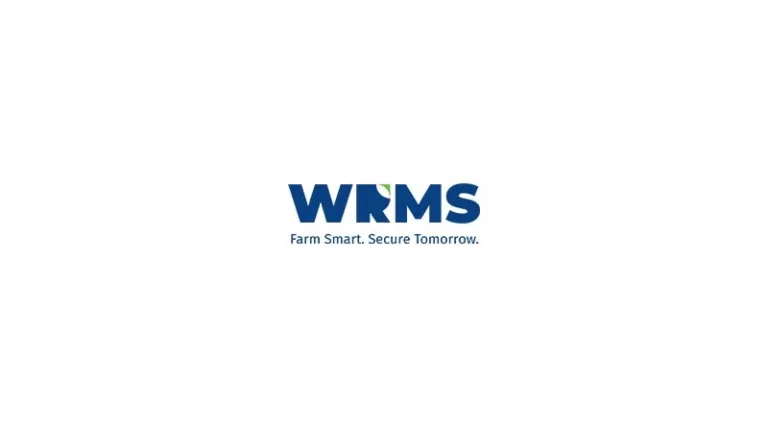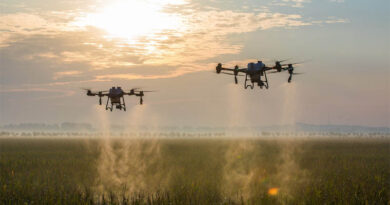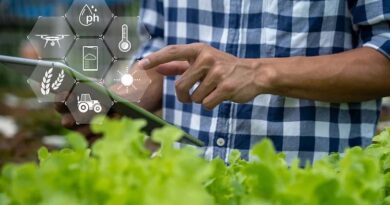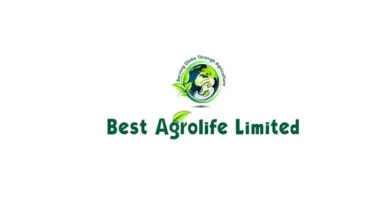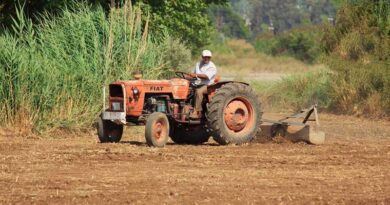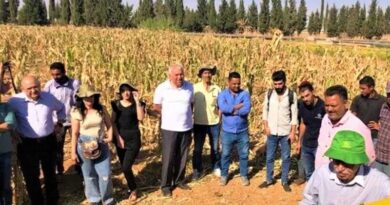The Future of Precision Agriculture Resides in Agricultural Intelligence
Guest Author: Dr. Ashish Agarwal, Co-Founder & CTO, WRMS
21 November 2023, New Delhi: According to the United Nations, the world’s population is projected to reach 9.7 billion by 2050, and the growing demand for food, feed, fiber, and fuel is putting immense pressure on global agriculture. To address this challenge, precision agriculture has emerged as a transformative solution, empowering farmers to optimize their resources while increasing crop yields and reducing environmental impact. However, the future of precision agriculture extends beyond just automation and data collection. It lies in the integration of cutting-edge technologies, data analytics, and artificial intelligence to create what is now known as Agricultural Intelligence.

The Evolution of Precision Agriculture
Precision agriculture, often referred to as precision farming or smart farming, has undergone a remarkable transformation over the past few decades. It began with the adoption of Global Positioning Systems (GPS) in the 1990s, enabling farmers to pinpoint their location and control machinery with exceptional accuracy. This marked the beginning of precision agriculture by enhancing the efficiency of planting, harvesting, and managing agricultural resources.
In subsequent years, precision agriculture witnessed the emergence of remote sensing technologies, including drones and satellites that could monitor and analyze crops. This equipped the farmers with valuable insights into crop health, soil conditions, and irrigation needs, enabling more informed decision-making. The era of big data in agriculture had begun.
The Role of Agricultural Intelligence
Agricultural Intelligence represents the next phase of precision agriculture, encompassing the integration of advanced technologies and data analytics to make farming not only more precise but also smarter. By harnessing the power of artificial intelligence, machine learning, and the Internet of Things (IoT), Agriculture Intelligence is revolutionizing the way we cultivate crops and raise livestock. Here’s how it is shaping the future of farming:
- Predictive Analytics: Agricultural Intelligence systems can analyze vast amounts of data, including historical weather patterns, soil quality, and crop health, to accurately predict future possibilities. It helps farmers anticipate and mitigate potential issues such as pests, diseases, and adverse weather conditions, ultimately leading to higher yields and reduced losses.
- Real-time Monitoring: IoT sensors and satellite technology enable real-time monitoring of crop and livestock conditions. Farmers can receive instant alerts and updates on their smartphones, allowing them to react quickly to changing circumstances. This level of connectivity helps optimize resource usage and reduce waste.
- Precision Pest Management: AI-driven image recognition and sensor technology can identify and monitor pests and diseases in real-time. By pinpointing affected areas with great precision, farmers can respond with targeted treatments, reducing the need for excessive pesticide use and minimizing environmental impact.
- Sustainable Resource Management: Agricultural Intelligence facilitates sustainable farming practices by optimizing resource usage. It helps farmers minimize water consumption through smart irrigation systems, reduce fertilizer and pesticide application, and implement efficient crop rotation strategies. This not only conserves resources but also reduces the environmental footprint of agriculture.
- Autonomous Farming Machinery: Self-driving tractors and other autonomous farming machinery are becoming more commonplace. These machines can operate day and night, ensuring continuous productivity while reducing labor costs. Advanced AI algorithms guide these vehicles, enabling them to make real-time decisions based on sensor data.
- Blockchain and Traceability: Agricultural Intelligence also enhances traceability and transparency in the food supply chain. Blockchain technology is being used to record and track every stage of production and distribution, from the farm to the consumer. This helps build trust and ensures food safety.
- Data-Driven Decision-Making: Farmers are no longer relying solely on experience and intuition. They can access data-driven insights and recommendations generated by AI systems. This empowers them to make informed decisions about planting, harvesting, and resource allocation.
Conclusion
Agricultural Intelligence is undoubtedly the future of precision agriculture. It represents a fundamental shift in how we approach farming, harnessing the power of data and cutting-edge technology to make it smarter, more efficient, and more sustainable. As the world’s population continues to grow, the pressure on agriculture to meet the rising demand for food is immense. Agricultural Intelligence is the key to ensuring that agriculture can meet this demand while safeguarding the environment and the livelihoods of farmers.
Farmers, researchers, technology companies, and governments must work together to overcome the challenges and harness the full potential of Agricultural Intelligence. Together, we can create a future where precision agriculture is not just a means to boost productivity, but a driver of sustainable and responsible food production. In this future, farms will be highly efficient, environmentally friendly, and connected to global supply chains, ensuring that everyone has access to safe, healthy, and abundant food.
Also Read: Global Fisheries Conference 2023 to be organized in India on 21-22 November at Ahmedabad
(For Latest Agriculture News & Updates, follow Krishak Jagat on Google News)

